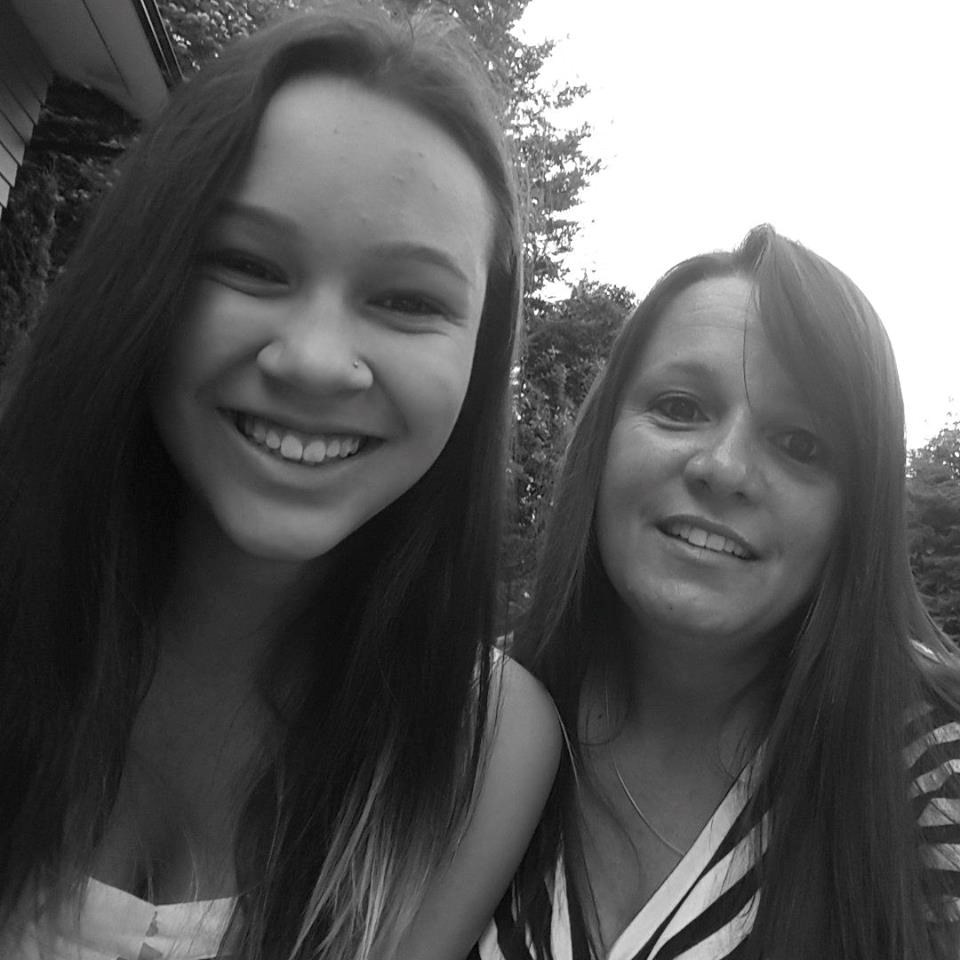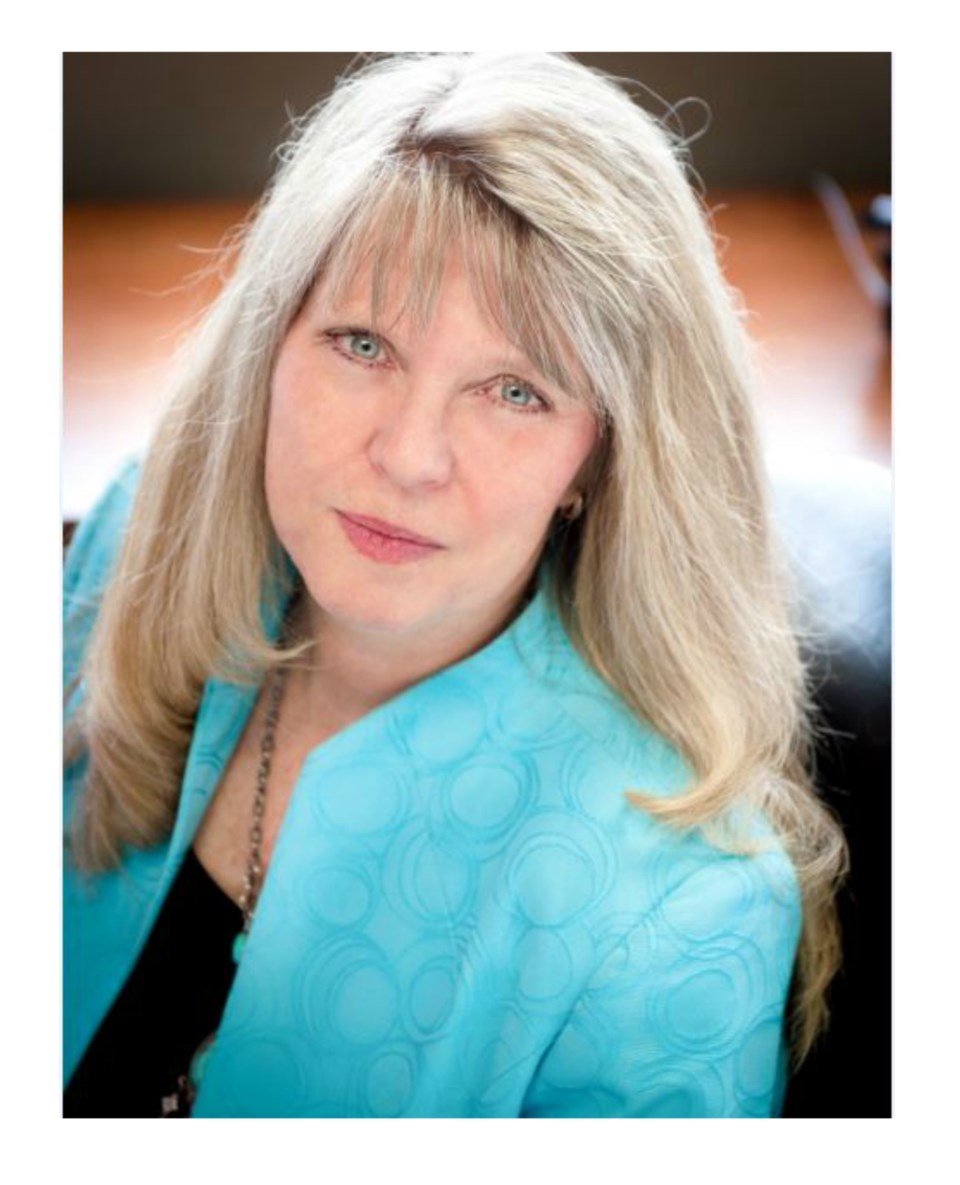Squamish student Steffanie Georgina-Anne Lawrence was a chatty, outgoing young girl.
“She was a happy, perfect little kid,” her mother Brenda Doherty told The Chief, adding the girl loved dancing and took lessons for 11 years.
She was also into acting and had been in commercials, said the girl’s stepfather Andrew Doherty, who went on to describe Steffanie as “smart as a whip.”
Her four brothers cherished her.
Like many teens, Steffanie got off track when she was 14 years old.
Tragically, for her, the often-challenging teen years ended far too soon.
She died Jan. 22 of a fentanyl overdose. Steffanie had taken off-market Xanax, her mother says, that was likely laced with the potent opioid.
She had recently turned 15 years old.
Now her devastated mother is speaking out about her daughter’s final months in hopes of changing a system that she says fails youth and their families in need of help.

In Steffanie’s case, that system saw her discharged from Lions Gate Hospital in North Vancouver despite her mother’s efforts to have her involuntarily committed for treatment just two days before her death.
“At 14, I don’t think they should be allowed to make these choices for themselves,” Doherty said. “There has to be some resources out there. There has to be help for these little people who are making these mistakes that are potentially fatal.”
Two weeks after their daughter’s death, Brenda and Andrew sat down with The Chief to describe the dramatic ups and downs they went through trying to get their daughter help. It is a complicated story with too many details to include here. However, one thing is clear — it was a family turned upside down due to addiction and the parents’ seemingly tireless quest to get their child into treatment.
The real trouble for Steffanie started in August.
She was sneaking out of the house and her parents discovered she was “dating” a 19-year-old man and experimenting with alcohol and drugs.
Because the girl was only 14 and the relationship was sexual, Doherty reported the man to the police. He was arrested and charged, but the charges have since been dropped, her parents told The Chief, because the girl is no longer alive to pursue legal action, a situation that bewilders her bereaved parents.
A Squamish RCMP representative said they can’t comment on any case involving a youth victim, but said in general terms, if the victim dies, sometimes the charges are stayed, depending on the case.
Recalling the months leading up to Steffanie’s death, the Dohertys described to The Chief various — often daily — attempts they made to help their daughter, including rallying the support of RCMP, victim services, a youth counsellor, a psychiatrist, psychologist, a doctor, and the Ministry for Children but say their attempts were thwarted at every turn by a system that for the most part, does not respect the concerns of parents and lets a child determine if and when she needs help.
“Everyone else had basically told us, ‘Your hands are tied, basically you have to let her go and do what she is going to do and hope to God she is OK.’ There was nothing we could forcibly do to help her,” Brenda said.
At her wits’ end and fearing for her daughter’s life, Steffanie’s mother had a One Medical Certificate (Form 4) filled out. It is an official form that allows a child, for her own safety, to be committed for treatment against her will. This was signed by the girl’s local doctor, which gave Doherty hope for the first time in a long time that someone was able to help, she said.
When the police picked the girl up in Vancouver and took her to Lions Gate Hospital, the hospital was supposed to hold her, Doherty said.
According to the Mental Health Act the involuntary admission is for 48 hours and then another doctor has to file a Form 4, after which the person can be held for 30 days.
Steffanie was released from Lions Gate within an hour after arriving, Doherty said.
“I didn’t even have time to get down there and they discharged her,”she said.
“They let her go and she died a day and a half later.”
Doherty says her daughter had previously been taken to BC Children’s Hospital and St. Paul’s Hospital, but they too quickly released the girl.
“There’s no help for these little people,” she said. “We tried every single thing you could think of to try and help her and every place we turned, the doors closed on us. There was nothing we could do.”
Vancouver Coastal Health, the health authority responsible for the hospitals Steffanie attended, could not comment on this specific case, but sent The Chief a statement that said to be held against their will, youth must meet the criteria for certification under the Mental Health Act.
“If a youth does not meet legal criteria for certification under the Mental Health Act and they are not willing to be admitted to hospital, they will be discharged. Under the current legislation, we cannot force treatment if the client is competent and refusing treatment,” the statement said. (See full statement to the right of this story.)
The Ministry of Children and Family Development, which also cannot comment on specific cases for privacy reasons, sent a statement that said, “In a circumstance where a young person is struggling with drug addiction and is unwilling to return home, the Ministry of Children and Family Development would focus first on helping them find safe temporary housing – ideally with relatives or friends, or at a shelter if necessary.”
The emailed statement also said the ministry would then work to connect the youth with “appropriate supports and services, including primary care; withdrawal management and supportive recovery; youth concurrent disorders programs; and residential treatment.”
But the ministry also acknowledged that the youth’s participation in these programs is voluntary.
“This government understands how heartbreaking it is for families to watch their loved ones suffer and not be able to do anything for them. We recognize there are serious gaps in access to the services our children and youth need – and that some have called for government to find ways to compel their child into addictions treatment,” reads the statement. (See full ministry statement to the right of the story.)
At one point, Steffanie was put in a “safe house” in North Vancouver, but the residents have to be out of the house during school hours and given Steffanie was not yet enrolled in North Vancouver she had no where to go during the day and quickly returned to drugs, Doherty said, adding that she was trying to enroll her daughter in North Van but the process is cumbersome for a non-resident and the girl wasn’t yet in classes.

For Diane Sowden, executive director with the Children of the Street Society — who has advocated for decades for a change in legislation so that parents can have their children held against their will for treatment — news of Steffanie’s death is extra heartbreaking.
Though decades have passed, Doherty faced the same limited options that Sowden faced with her own daughter Catherine in the 1990s.
B.C. does not give parents the right to have their child held in a treatment facility or hospital against their will.
“The hospitals won’t hold them unless they are a risk to themselves or someone else and if the youth says they aren’t a risk to themselves, they are released,” she said.
Though she has been fighting for this change for decades, most parents aren’t aware of how little control they have until their own child is in trouble, she said.
With the current fentanyl crisis, she hopes the issue will be brought back to light provincially.
She said she recognizes politicians and the general public are uncomfortable with the idea of holding a child against her will, but she questions what the options are, especially given the current crisis.
“It is what has happened to this young girl and I am really uncomfortable with that,” she said.
The judgment and stigma that is often associated with having a so-called troubled child has to go, Sowden said.
“Everyone is going, ‘What are the parents doing?’ I think that happens because it is human nature to protect ourselves by saying, ‘This would never happen because I am a good parent. They must be doing something wrong in that household or else this would not have been happening.’ What people have to understand is kids can come from any walk of life,” Sowden said.
Last year, before the provincial election, then-Liberal MLA Gordon Hogg introduced the Safe Care Act to the Legislature. It was a Private Member’s Bill that would permit the involuntary confinement of children with severe substance issues, or those being sexually exploited. It would have established a legal process that would enable a court to authorize the placement of kids — with parental and court support — for a short period of time for their safety.
When the NDP government came to power after the election, the bill died on the vine, but Sea to Sky MLA Jordan Sturdy was supportive of the proposal and would like to see something similar re-proposed, though he acknowledged it is a complex issue with civil liberty concerns, for example, that need to be worked out before such a bill could became law.
“But just because it is hard, doesn’t mean it is not worth trying,” he said.



